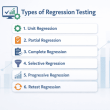Introduction: Pros and Cons of Using No-Code Websites
In the world of blogging, getting your voice heard has never been easier, thanks to the advent of no-code website builders. These platforms have revolutionized the way bloggers create and manage their online presence, offering a streamlined alternative to traditional coding. But before you embark on your blogging journey with a no-code website, it’s crucial to weigh the pros and cons.
In this article, we’ll delve into the advantages and disadvantages of using no-code websites as a blogger. Our goal is to provide you with valuable insights that will help you make an informed decision about the best path for your blogging aspirations.
The Pros of Using No-Code Websites as a Blogger
Let’s look at the top benefits of using no-code websites as a blogger:
1. Simple to Set Up
For those embarking on their blogging journey, simplicity is paramount. No-code website builders offer a hassle-free setup experience. Here’s why this matters:

- Templates and Drag-and-Drop Tools: With no-code platforms, you start by choosing a template that suits your blog’s style. From there, you can effortlessly arrange your site’s elements using intuitive drag-and-drop tools. This means you don’t need to grapple with complex coding or technical skills.
- Categories and Menus: Setting up categories and customizing menus is a breeze with no-code websites. You can easily organize your content and provide a seamless navigation experience for your readers. This simplicity allows you to concentrate on what matters most: creating valuable content.
2. Aesthetically-Pleasing Website Designs
In the crowded blogosphere, making a strong first impression is crucial. No-code website builders empower you to create visually captivating blogs. Here’s why it’s advantageous:

- Appealing Design: No-code platforms offer an array of professionally designed templates. These templates are crafted to be visually appealing and can instantly elevate the aesthetics of your blog. This ensures your blog not only informs but also engages your audience.
- Integration with Stock Images: Many no-code platforms integrate seamlessly with stock image websites like Unsplash. This means you have easy access to high-quality images to enhance your blog posts. No need for the tedious process of downloading and uploading images manually.
3. Ease of Writing Blog Posts and Uploading Photos
A complex content management system can be a blogger’s worst nightmare. No-code websites alleviate these concerns, making the writing and content uploading process seamless:

- Streamlined Content Creation: With no-code platforms, writing and editing blog posts is straightforward. You can focus on your creativity without getting bogged down by technicalities. This ensures you stay motivated and maintain a consistent blogging schedule.
- Scheduling and Publishing: No-code websites often include scheduling features, allowing you to plan your content ahead of time. This automation ensures your posts are published promptly, keeping your audience engaged.
4. Good Responsiveness
User experience is paramount for retaining your audience, and responsiveness is key to achieving this. No-code website builders excel in this aspect:

- Fast Loading Times: No-code platforms typically prioritize site responsiveness. This means your blog pages load quickly, ensuring visitors don’t get frustrated waiting for content to appear. A smooth browsing experience keeps readers engaged.
5. Useful Integrations
As your blog grows, you may want to expand its functionality and reach. No-code website builders often come with valuable integrations:
- Monetization: If you aim to monetize your blog, no-code platforms can integrate with eCommerce tools, making it easier to manage transactions.
- Social Media: Integrations with social media platforms streamline the sharing of your content, helping you grow your audience.
Cons of Using No-Code Websites as a Blogger
Let’s identify the disadvantages that might hold you back:
1. Limited Customization
While no-code website builders offer convenience, they do have limitations in terms of customization:
- Template-Based Customization: No-code platforms offer customization within predefined templates. While this is sufficient for many bloggers, those seeking unique designs or extensive customizations might find these options restrictive.
- Scaling Challenges: Over time, as your blog matures and your needs evolve, you might outgrow the customization options available in no-code platforms. This could potentially hinder long-term scalability.
2. Manual Work Is Still Required
Despite the convenience of no-code platforms, there’s still some manual work involved:

- Design Choices: You’ll need to select a design that aligns with your blog’s theme and branding. While this is a creative task, it still requires time and decision-making.
- Integrations: Managing integrations and configuring them to suit your needs is necessary. This involves some technical tasks and setting preferences.
- SEO: Search engine optimization (SEO) remains crucial for blog visibility. You’ll need to add metadata and optimize your content manually.
Conclusion:
No-code website builders offer a plethora of advantages for bloggers, making it easier to start and maintain a blog with minimal technical knowledge. However, they do come with limitations in terms of customization and require some manual input. Carefully considering your goals and needs will help you decide if a no-code platform is the right choice for your blogging journey. No-code websites are a fantastic choice for bloggers seeking a user-friendly and visually appealing platform to kickstart their journey. These platforms simplify setup, enhance aesthetics, and offer valuable integrations. However, it’s crucial to consider their limitations and the manual work involved.
Before diving in, weigh the pros and cons carefully to determine if a no-code website aligns with your blogging goals. Whether you choose simplicity or customization, make an informed choice that sets you on the path to blogging success.












